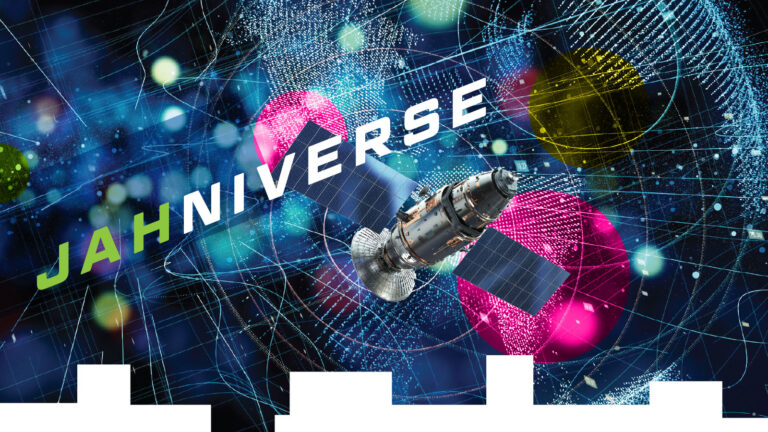Stay Up to Date
Submit your email address to receive the latest industry and Aerospace America news.
We have a war in Ukraine, monumental crises related to climate change and environmental unsustainability on Earth and in space, a growing disparity between the wealthy and the poor, and a plague of misinformation in the United States and abroad. Our modern lives and humanity’s very existence have reached an inflection point. We need holistic solutions to these and other societal problems, and we need fresh ideas about how to create them.
One might think that our biggest obstacle is a shortage of innovative policy or technical solutions, but in reality, the largest impediment is a lack of compassion for those suffering the brunt of these crises. Even when we have empathy for people who are bombed and under siege or suffering in a climate-induced drought or forced to take refuge in orbit from space junk, we can have a tendency to file such crises under “not my problem.” We count ourselves lucky and perhaps make a donation when we should realize that these problems are ours too.
Let’s look at the concept of compassion. When I worked at NASA’s Jet Propulsion Laboratory as a spacecraft navigator, I developed a method to navigate aerobraking spacecraft autonomously. I was even formally recognized with a NASA Space Act Award for my method. Autonomy wasn’t implemented, not because the idea sucked but because there wasn’t wide acceptance that the problem I aimed to solve — labor-intensive operations — was really a problem at all. JPL has been quite successful at getting humanmade hardware across the solar system with conventional navigation. Because no one else was particularly frustrated by the problem I saw, no one felt compassion for it and therefore no action was taken.
Flash forward, and I’m now focused on solving problems related to space sustainability, including avoiding additional pollution and mitigating the pollution that’s already there. There’s no shortage of innovative ideas in my field. What’s lacking is enough curiosity at a global level to complete the chain from awareness to empathy to compassion and action.
Let’s look at empathy. As a creator of knowledge about the orbital environment, one of my mantras is that to know something one must measure it. In a sense, empathy could be viewed as our way of measuring or quantifying a condition experienced by others. It’s a necessary step, but just as measurements alone cannot solve a technical problem, empathy alone is also insufficient. We must view empathy as the doorway to motivate compassion.
On the topic of space sustainability, I regularly engage people to help raise awareness. Perhaps I’ve generated some empathy for the astronauts and cosmonauts whose lives are threatened by debris or for the astronomers whose ability to see clearly into the cosmos is now compromised. My biggest struggle is to get us to turn our empathy to compassion and action. In a sense, we must feel compassion for our future selves in the following sense: The uncoordinated growth of space traffic and pollution could someday make it impossible for any of us to communicate over the internet, to navigate our world, engage in modern commerce or open the space frontier.
With compassion as our goal, here is the process as I see it for those and other problems: First, we must be curious enough to become aware of the pain, struggles and frustrations of others. Curiosity exists when we recognize our own ignorance and become motivated to remove that ignorance. The ensuing learning creates awareness, and ideally this awareness leads to empathy and compassion. Whew, we have a long chain of criteria to meet if we wish to solve societal problems.
There’s probably no better way to motivate compassion than by providing evidence to someone that the problems ailing others are, in the end, also our own. The idea that all things are interconnected and the spirit of stewardship can be fertile ground for growing compassion and making it flourish. Humanity, and the Earth as a whole, would be the better for it.
About Moriba Jah
Moriba is a professor at the University of Texas at Austin and chief scientist at Privateer. He helped navigate spacecraft at NASA’s Jet Propulsion Lab and researched space situational awareness at the U.S. Air Force Research Laboratory, and is an AIAA fellow.
Related Posts
Stay Up to Date
Submit your email address to receive the latest industry and Aerospace America news.




